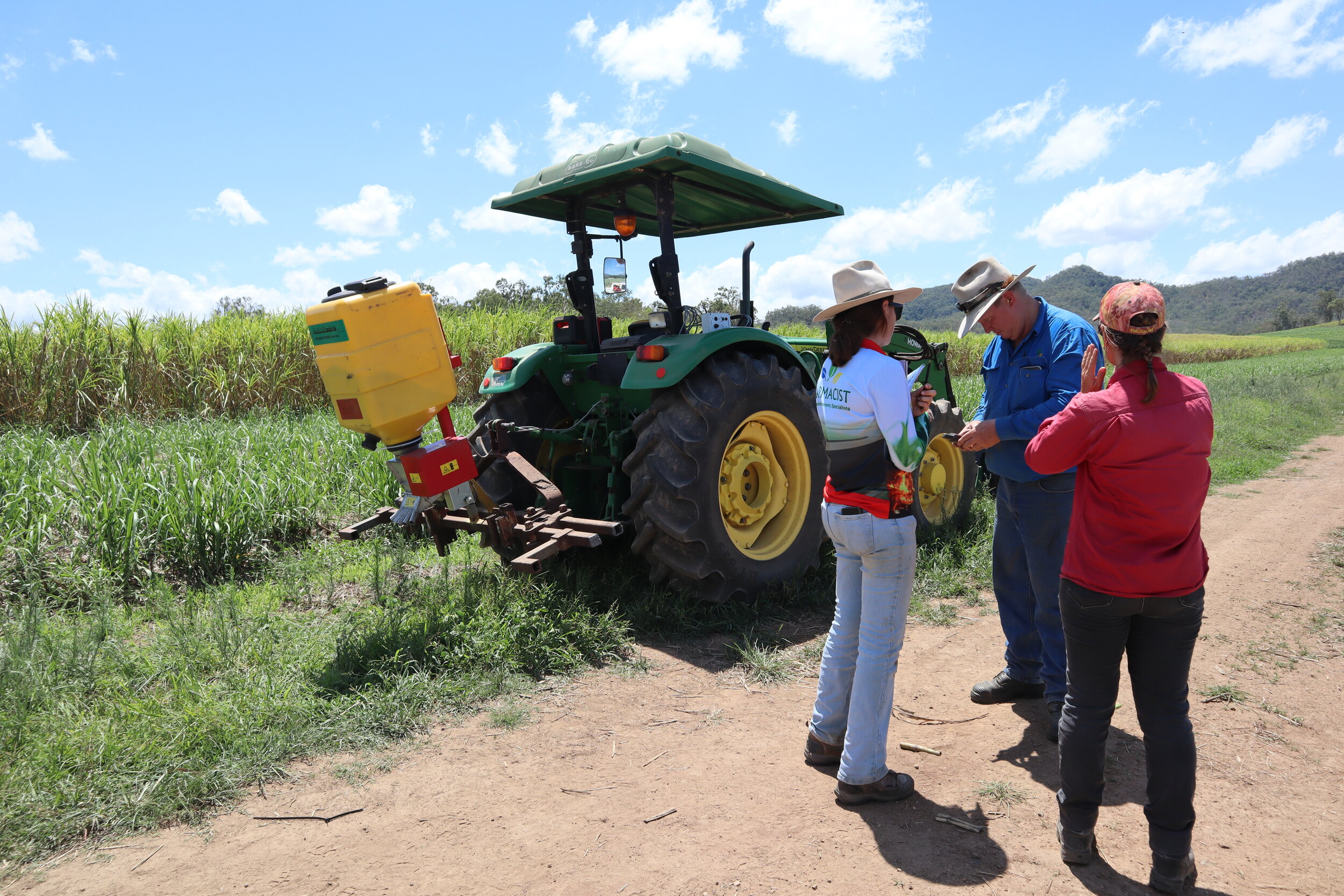The future is bright for Queensland's agricultural industry
John Markley from agronomic consultancy Farmacist believes the future is bright for Queensland agriculture, but more needs to be done to prepare the next generation for the fourth industrial revolution.
Starting out as a chemist in the sugar industry, Mr Markley witnessed first-hand how information and communication technology fundamentally changed how sugar cane is produced.
It wasn’t until an opportunity opened up to work with satellite and GPS technologies that Mr Markley began to see how real-time and near real-time monitoring of soils, nutrients and crop densities could help improve his work with growers.
“This new technology created knowledge of spatial variation in soils and crops, improving the accuracy of collecting and analysing soil samples.
“Previously it was a bit like flying blind, which could cost growers time and money in lost nutrients, water and other natural resources, Mr Markely said.
“The industry was quick to see the value of GPS back then, but limitations to infrastructure made deployment a matter of decades, not months.”
Geographic Information Systems (GIS) and variable rate control, powered by GPS technology, came on the scene in the 1980s and 1990s, but a mix of organisational, technical and communication barriers slowed the rate of adoption and, in some cases, stalled it all together.
So, on top of his job as a chemist, Mr Markley began working with researchers and the government on extension programs to help improve farm management practices using GPS.
His assignments ranged from installing a GPS base station in the Mackay region to integrating tracking units for cane harvesters, but it was his work on Project Catalyst that helped scale his impact across the region.
Funded by the Coca-Cola Foundation and the Australian Government Reef Trust programs, Project Catalyst worked with more than 70 growers to help improve water quality through improved soil, nutrient and chemical management.
The experience led Mr Markley and two of his colleagues to form Farmacist in 2011, working with growers to improve farm management using technology-based solutions, research and technology services.
“The demand for all of our services is growing rapidly which is a sign that growers are showing more interest in improving their farm management programs.
“We just finished a major project with the University of New England looking at sensor and satellite technologies,” Mr Markley said.
“A lot of researchers also need service providers to help realise their work, so we conduct the research on the ground to understand what works and what doesn’t.”
Mr Markley said the biggest barrier to innovation in the agricultural industry is the rapid acceleration of innovation which exceeds what the technology can actually do.
“It sounds strange, but look at variable rate nutrient chemical control -- that technology has been around for more than twenty years, but one of the things you need to make it work is information to feed into the computer to tell it what to do.
“A lot of that information wasn’t available back then, but research within the agriculture community is making this information more readily available,” Mr Markley said.
“And to adopt change, growers need to be confident that it’s going to work, so when we introduce any new piece of technology or methodology, we need to be very confident it’ll work and ensure the grower has faith.”
Mr Markley believes communications infrastructure like WiFi and high-speed broadband remains one of the most stubborn barriers throughout his career, although fewer blackspots and the national broadband network has helped close the gap.
“Political influence has also increased negativity about change. It’s human nature to be skeptical and, sometimes, the politics around it make a bigger headline than it deserves.
“That’s now being overcome thanks to a growing body of success stories, so I think a lot of the political influence that may have interfered with people’s judgement in the past has become less of a barrier,” Mr Markely said.
According to Mr Markley, innovation is on the verge of becoming a “core skill” of the agricultural industry with the task being left to the next generation of agronomists.
“Autonomous vehicles, drones and the internet of things are already here and it’s this blend of technology and agriculture that will create the next wave of lucrative jobs.
“A lot of young people coming out of university are great communicators and they’re eager to learn, but they need to be ready to implement these technologies and need senior professionals to help mentor them,” Mr Markley said.
“As an industry we need to promote what’s exciting about agriculture by selling these opportunities to students and letting them know there’s an exciting career path in technology and agriculture.”
“Over my career, I’ve seen what GPS and other technologies have done to the industry and the electronics that are now coming in like moisture sensors and soil chemical sensors now let us give more detailed information to growers,” Mr Markley said.
“The future is very bright in agriculture.”

